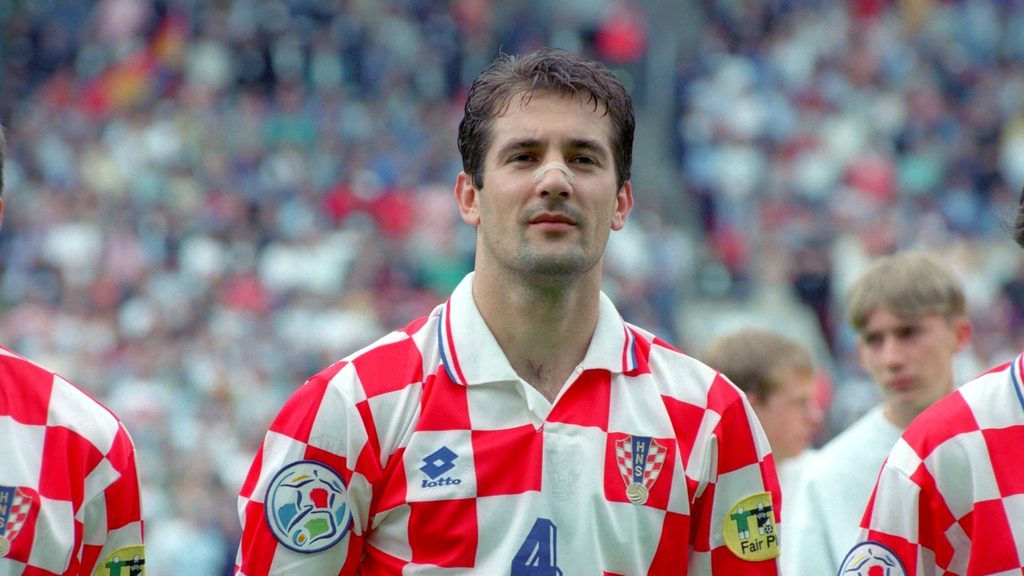In The Stands, ft. Igor Stimac: Growing up in Yugoslavia, exploits in England, and more
Indian men’s football senior national team head coach Igor Stimac has a profound reputation of having a warrior-like personality when it comes to managing teams – clubs or national sides alike.

 Image Credit: FIFA
Image Credit: FIFAIndian men’s football senior national team head coach Igor Stimac has a profound reputation of having a warrior-like personality when it comes to managing teams – clubs or national sides alike.
The head coach, who took over the mantle from Englishman Stephen Constantine, has ignited a spark among the Indian faithful with his eclectic brand of football that has nurtured and developed Indian football by leaps and bounds in his four years of tenure so far.
There were glimpses of Stimac’s aggression and pugnacity in the recently held SAFF Championships where he was sent off in two separate matches for disputing and arguing against a questionable decision by the match referee.
However, for the Croatian, who played as a defender during his playing days, it was an amalgamation of several socio-political circumstances that led him to the man he is today.
A persona of multiple traits and qualities, the 55-year-old grew into a Croatia that was, erstwhile, a part of a union of several countries grouped together, known as Yugoslavia – a communist country.
As such, Stimac made every effort of his count in the face of multiple hurdles on his path to make his debut at 18 with then Yugoslavian side Hajduk Split.
“It was very difficult to enter the senior team because at that time in Yugoslavia the rule for players was that they cannot leave the country prior to the age of 28. So, you can imagine the competition which was going on and happening in the league,” revealed Stimac in the first part of his interview as part of the In the Stands show hosted by Suyash Upadhyaya where he tries to explore about the life of football professionals beyond the footballing pitch.
“For us youngsters, it was really difficult, you should have enormous quality and strength to enter the team; but I made it. It was not easy, I left my home when I was 16, my parents didn’t want to let me go when I was 14. They decided it was too early for me to join Hajduk Split academy, which at that time was one of the best football academies in the world.”
His exploits with Hajduk Split were noteworthy as the centre-back made double-digit appearances for them and netted a solitary goal besides representing the club in the UEFA Champions League. Further, he showed his extraordinaire in the U20 FIFA World Cup after being called up for Yugoslavia who eventually won the coveted competition.
Stimac’s side topped the group, winning all three games and reached the knockout stage. Yugoslavia then went on to beat the likes of Brazil, East Germany, and West Germany in the quarter-final, semi-final, and final, respectively. The defender chipped in with two goals – one in the group stage and the other in the semi-final against East Germany.
“I waited another two years to fulfil my dreams, but from there to fulfil my dreams, another seven-eight years of pain, sacrifice, suffering, challenges, doubts, everything that one young player goes through who dedicates his life to sport,” he expressed.
After gaining prominence at Hajduk Split, the centre-back — who also played as a sweeper owing to his exceptional defensive attributes — was named as the captain. Under his leadership, the side won the domestic double in the 1991-92 season – the Croatian league and the Yugoslav Cup, winning it for the first time.
"To enter the best 11 of the history of #DerbyCounty, is something precious"
— Indian Super League (@IndSuperLeague) July 17, 2023
Did you know there is a bar named after @IndianFootball Head Coach @stimac_igor at @dcfcofficial? 🤔
Full Video: https:/t.co/88bPz0oMLq#HeroISL #LetsFootball #InTheStands #IgorStimac #IndianFootball pic.twitter.com/NvWPIPpxTt
The defender’s trajectory kept soaring high and soon after winning the league for his hometown club yet again in 1994-95, he took a bold step and signed for English top-flight club Derby County. The newer pastures didn’t stop the Croatian from succeeding as he marshalled the Rams — who were struggling to secure points — to promotion in the Premier League whilst being on a 20-game unbeaten run.
The honours didn’t just stop there for Stimac, who then became the first foreign player to be named as the captain for a Premier League side, and little did Stimac know that he was going to be enlisted as one of Derby County’s greatest players.
“From 1995 to 1999, when I was wearing a Derby County shirt, we secured promotion in my first season there and that was unbelievable. I’m proud because the Pride Park Stadium, the new one, there you have only two restaurants which are dedicated to their most famous football players,” he mentioned.
“One of them on the VIP corner is dedicated to Roy McFarland who was the captain of the golden generation of Derby County who won the championships in the 70s. The one on the left is called Igor’s bar, which is dedicated to me. To achieve such things in four years, to enter the best eleven in the history of the club which was started in 1884 is something precious,” he added.
Stimac and his men’s heroics for then Yugoslavia at the U-20 FIFA World Cup still remains historic, and were revered as the Golden Generation of Croatia. Stepping foot on the gas, the defender held the backbone of a Croatian team that won bronze at the 1998 FIFA World Cup where they went down to France in the semi-final but won the third-place match against Netherlands.
These performances watered the same Croatian soil that has led to a flowering bunch of successful footballing professionals over the years in the nation who are now globally recognized across the footballing fraternity.
“That (U20 FIFA World Cup) generation was actually the base for the Croatian success in the future because at the starting eleven of that World Cup were six Croatians and I was one of them,” he said.
After his stint at Derby County, Stimac moved southwards towards London and plied trade for West Ham United where he spent two seasons with the Hammers and garnered 50 appearances. The defender hung up his boots at the same place where he started – Hajduk Split before getting himself involved in coaching.
Watch Part one of In The Stands with Igor Stimac here:

























